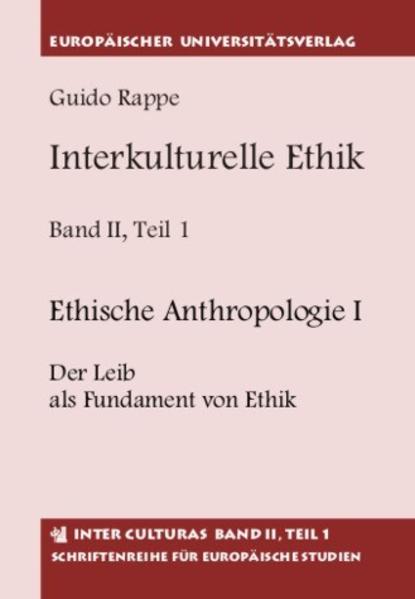
Interkulturelle Ethik. Historisch-kritische Untersuchungen zur Grundlegung... / Ethische Anthropologie I Der Leib als Fundament von Ethik. Ethische Anthropologie II Personale Ethik
Product Information
Product Description
On Part I: In contrast to dominant natural scientific concepts of humans, which achieve increased public impact particularly through recent brain physiological research, but also in critical distinction from spiritual metaphysical ideas that have determined the ethics discussion of European tradition for 2500 years, this volume is concerned with developing foundations of an anthropology that proceeds from ethical phenomena and the moral quality of humans. These are understood as a specific mode of human existence whose roots reach deep into bodily experience. Between the neural firing on one side and 'spirit', 'soul' or 'consciousness' on the other side, a terminological foundation oriented to empirical phenomena shall be laid through critical distinction with the concept of the body, its vitality, its mnemonic potency and its capacity for communication, upon which both further personal ethics with the moral feelings that found them as well as an intercultural comparative consideration of ancient ethical concepts can build can. Regarding Volume II: A modern ethics requires a conceptual foundation that adequately considers the emotional and intellectual aspects of human beings. This is offered in the present Ethical Anthropology through the concept of the person, whose understanding also includes the concepts of personal identity, free will and responsibility, as well as disposition and conscience. Their development requires a phenomenological-historical view of the understanding of feelings and thinking in European culture, which reveals those aspects that have been largely suppressed in their relevance for moral justification by the dominant branch of metaphysics. From this perspective, Personal Ethics seeks its basis in emotional experience, without which an understanding of moral quality is impossible, and which is discussed using the example of the morally foundational feeling of sympathy. But moral feelings alone are not sufficient; they require critical support from reason and an effort toward self-cultivation. Only then can they form part of that balanced path to life's success, which enables humans to lead their moral potential toward its lifeworld completion.
Additional Information
Regarding Volume I: In contrast to dominant natural scientific concepts of humans, which achieve particularly strengthened public impact through recent brain-physiological research, but also in critical distinction from spiritual-metaphysical ideas that have determined the ethics discussion of the European tradition for 2500 years, this volume is concerned with developing foundations of an anthropology that starts from ethical phenomena and the moral quality of humans. These are understood as a specific mode of human existence whose roots reach deep into bodily experience. Between neuronal firing on one side and 'spirit', 'soul' or 'consciousness' on the other side, a terminological foundation oriented toward empirical phenomena shall be laid through critical differentiation with the concept of the body, its vitality, its mnemonic potency and its capacity for communication, upon which both further personal ethics with the moral feelings that ground it as well as an intercultural comparative consideration of ancient ethical concepts can build can. Regarding Volume II: A modern ethics requires a conceptual foundation that adequately considers the emotional and intellectual aspects of human beings. This is offered in the present Ethical Anthropology through the concept of the person, whose understanding also includes the concepts of personal identity, free will and responsibility, as well as disposition and conscience. Their development requires a phenomenological-historical view of the understanding of feelings and thinking in European culture, which reveals those aspects that have been largely suppressed in their relevance for moral justification by the dominant branch of metaphysics. From this perspective, Personal Ethics seeks its basis in emotional experience, without which an understanding of moral quality is impossible, and which is discussed using the example of the morally foundational feeling of sympathy. But moral feelings alone are not sufficient; they require critical support from reason and an effort toward self-cultivation. Only then can they form part of that balanced path to life's success, which enables humans to lead their moral potential toward its lifeworld completion.
Series Information
Inter culturas - Series for European Studies (2)